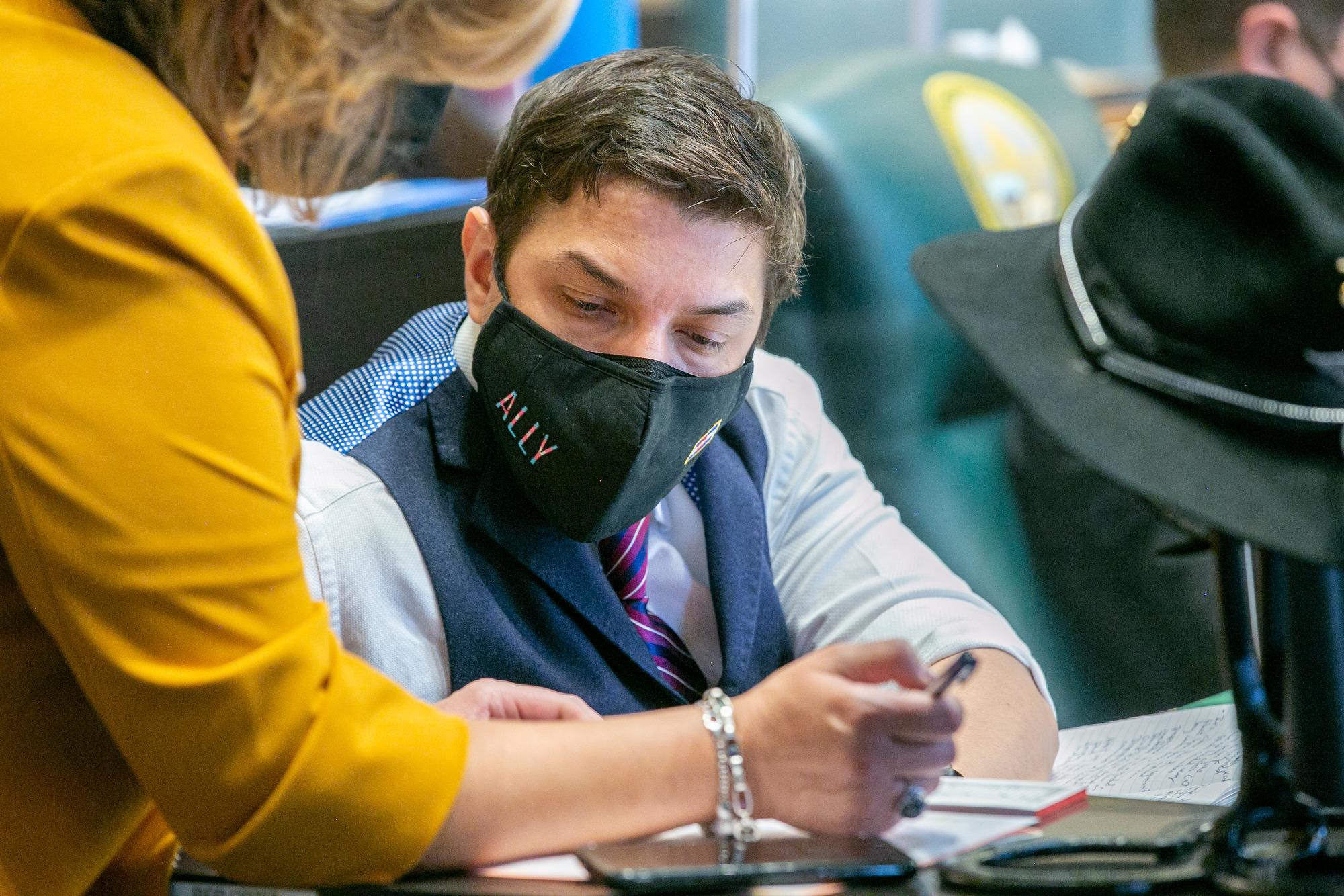
It was the final day of a tough week at the state capitol when state Reps. Richard Holtorf, a Republican, and David Ortiz, a Democrat, headed to the cigar bar at the Brown Palace Hotel.
Two days earlier, during a heated discussion on the House floor, Holtorf had called Ortiz "Buckwheat," a racist term based on a caricature of a Black character from an early 20th-century television show. The incident rapidly became national news.
Privately, Ortiz reached out to Holtorf to have a conversation.
“I was like, let me follow up and see where things are at and where he's coming from and what the next steps are,” said Ortiz, who is Latino. “Just try to have a very frank and honest discussion with him.”
Both men said they had a productive conversation away from the Capitol. In an interview with CPR News, Holtorf said he did not know the racial history or context behind the term "Buckwheat," but acknowledged that he never should have used a pejorative nickname with Ortiz.
In a public apology, he told his colleagues they need to hold themselves to a high standard, and it starts with him.
“I see all of you as my brothers and sisters,” he said at the podium of the chamber floor. “All created by God and all equal. I cherish working with you each and every day.”
Holtorf’s comment wasn’t the first time this session that state lawmakers gained unwanted attention because of offensive remarks. During a discussion on a bill to strengthen civics education in K-12 schools, Republican state Rep. Ron Hanks said the Three-Fifths Compromise, an 18th-century policy that counted slaves as less than full people for taxation and Congressional representation, “was not impugning anybody’s humanity."
He also made a joke about lynching.
How lawmakers talk about race isn’t just an issue of decorum. It's also come up in many policy debates this year, from criminal justice reform to health care and education. When lawmakers discussed the state budget, Democrats advanced the idea that Colorado’s spending should address long-standing inequities in society, a view some Republicans pushed back on.
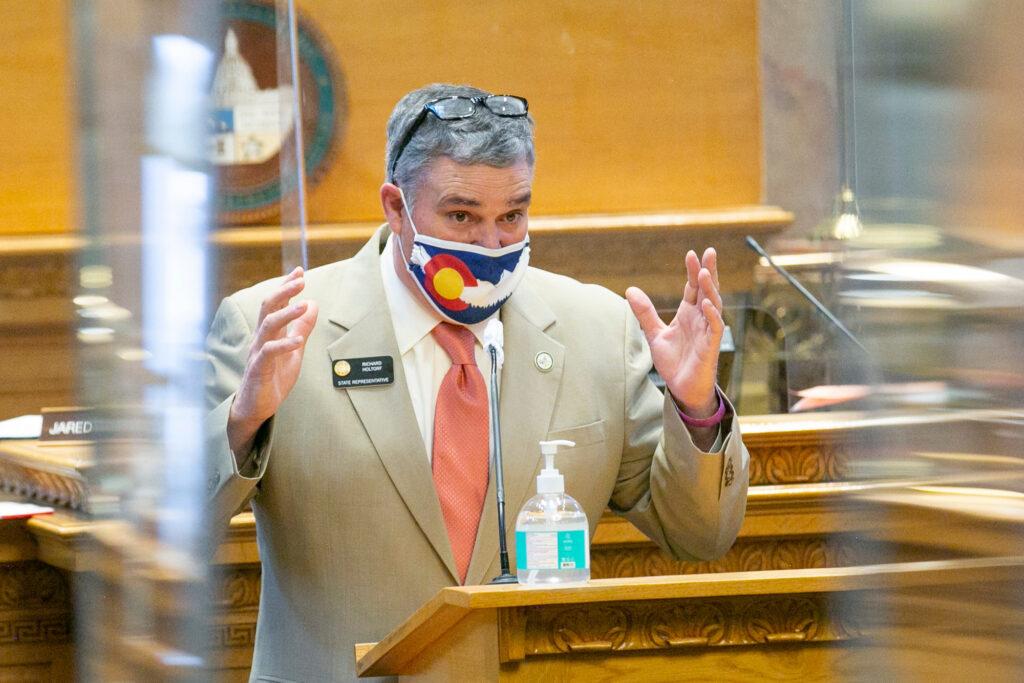
Private conversations and public threats
As they navigate one of the most contentious issues in American society, lawmakers have struggled at times to maintain working relationships and personal friendships.
While Holtorf said he now understands why his comment upset so many of his colleagues, and in particular members of the Black caucus, he also feels some Democrats overplayed the situation and made it into a bigger deal than it needed to be.
“My narrative is very different than their narrative and their understanding. We have to understand that there are different meanings for different words, for people that come from different places,” he said. “What is unfortunate is, I don't think we have the patience, because of this racially charged environment we're in, in this country, to listen and get things in context before we jump to conclusions.”
After the incident made national news both Ortiz and Holtorf say they’ve been threatened.
“Hate speech, death threats ... it is unbelievable, all the words that would be used in response to the word ‘Buckwheat,’ out of context,” Holtorf said.
For his part, Ortiz said he was glad he had a chance to sit down with Holtorf for a long talk away from the hustle and bustle of the Capitol. Both men are combat veterans and flew helicopters in the Army, a bond they value.
“Anybody that served in the military is family to me,” Ortiz said. “And we all have family members that will get up and embarrass us from time to time.”
Ortiz said he doesn’t excuse what Holtorf said, but does want him to come to a better place.
“I want him to learn and grow from this so that we don't have to do this. I want that for the institution too, because we're supposed to represent the best in our communities. And it really starts with the example that we set,” Ortiz said.
In the wake of these incidents, some Democrats are pushing for all lawmakers to go through training on equity, race and inclusion before next year’s session.
Discussions about the effects of systemic racism are contentious
Lawmakers are having more discussions than ever before about systemic racism and the forces that shape people’s lives in America, maybe none more so than state Rep. Jennifer Bacon of Denver.
The first year lawmaker is a member of the Democratic Black Legislative Caucus and said she’s had coffee and lunch with a number of Republicans after they’ve said things that concerned or upset her, in order to talk with them privately about their words.
Bacon said she didn’t expect to have to do this type of work in the legislature, but she wants people to understand her direct experiences with racism, and systemic racism. She said when she hears colleagues saying the country has moved beyond these problems, it invalidates her own life experience.
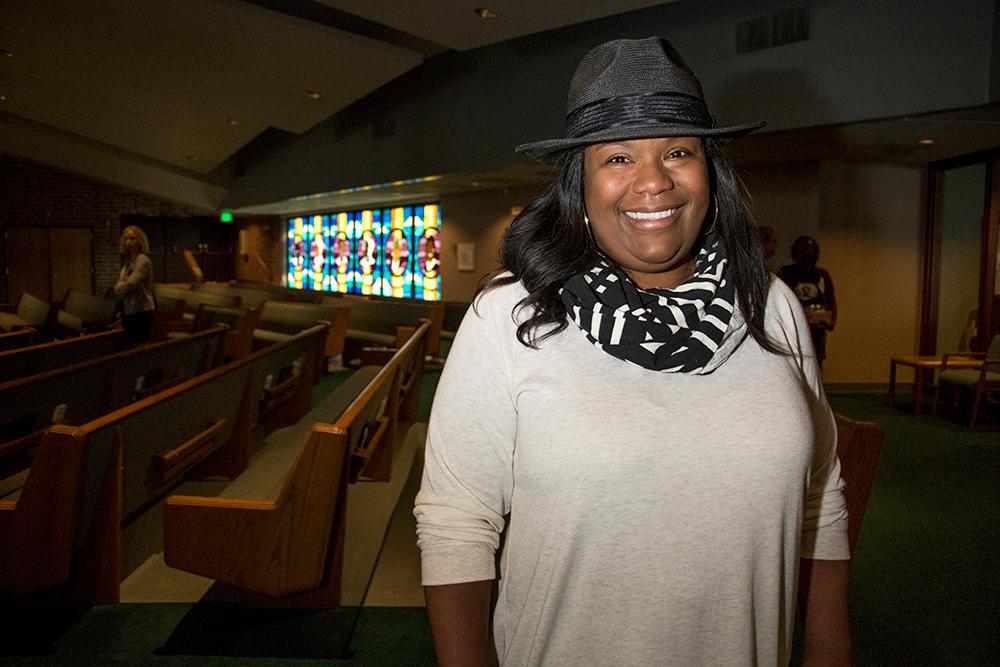
“My Blackness does not go away... When I walk into a room, some people see ‘Black’ before they even know what my name is," she said. "The reason why we talk about it is because it happened to us, you know? And it happened to a lot of people here. So when they say, ‘you're trying to divide,’ you are denying who I am. That is why it's painful.”
Bacon said she thinks the country has, unfortunately, not done a good job of defining systemic racism, while also defining what it means to be a racist very narrowly, as someone who uses racial slurs and consciously wants to hurt people of color. She says that allows people to overlook the systems that have been in place for hundreds of years to advantage one race over all others.
“This country made it a point for 200 of its 250 years to have laws that codified what race is (and) also what people can't do because of their skin color. They codified it because it was supposed to have an impact and was supposed to shape some sort of outcomes here," Bacon said. "Why do we think it didn't work? You know what I'm saying? And so we have to be intentional in undoing that.”
But many Republicans see these issues very differently. They feel like Democrats are calling too many things "systemically racist" to advance their policy positions and shut down disagreement.
“(When they are) calling out white supremacy and white privilege and so on, most of us white folk are just going, ‘Why is that applied to me?’” said state Rep. Mark Baisley of Roxborough Park. “I don't apply that to me. I don't behave that way. I don't think that way. So that's an offense in and of itself.”
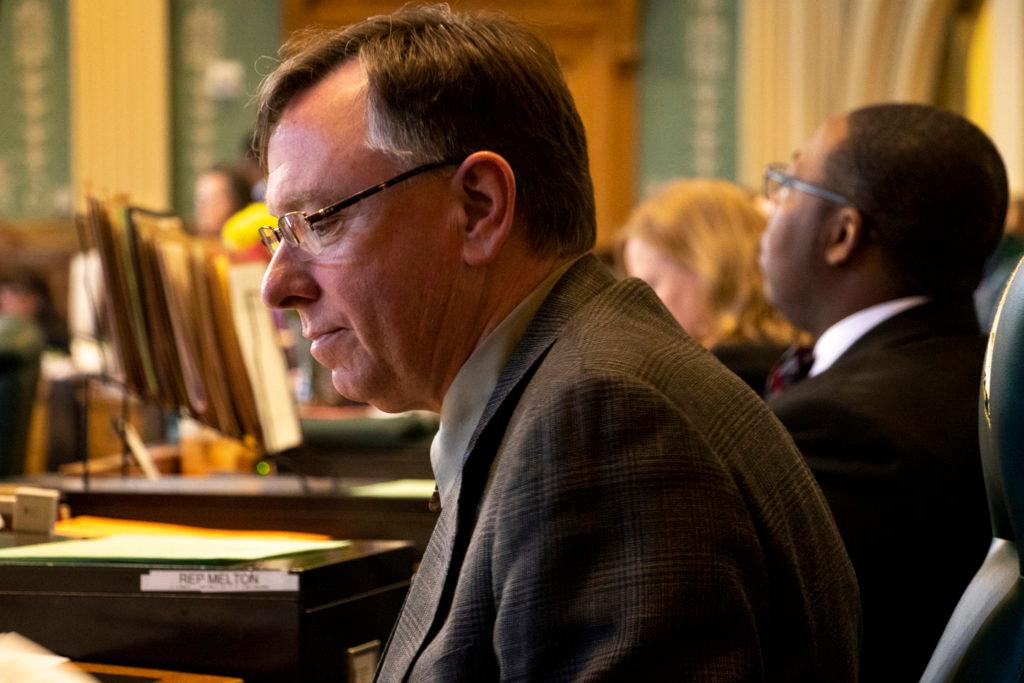
Baisley said he likes to surround himself with people from different backgrounds and says one of his closest friends in the legislature is Democratic state Rep. Brianna Titone, the state’s first transgender lawmaker.
He said it really bothers him when Democrats bring up the idea of institutional racism on bills and policies where he thinks it doesn’t apply.
“It breaks my heart, frankly, because we have enough challenges, just Republicans and Democrats and Libertarians and finding the common ground to make this a great place to live,” he said.
The issue most recently came up for him when the House was discussing a bill to create a pilot program aimed at helping renters gain access to credit. Baisley introduced an amendment to remove language from the bill that discussed disparities in homeownership between blacks and whites.
“We need to get away from adding, for not any healthy reason for not any constructive reason, all the racial components to this. If folks need our help, it's because of their financial condition. It’s irrespective of race,” he said.
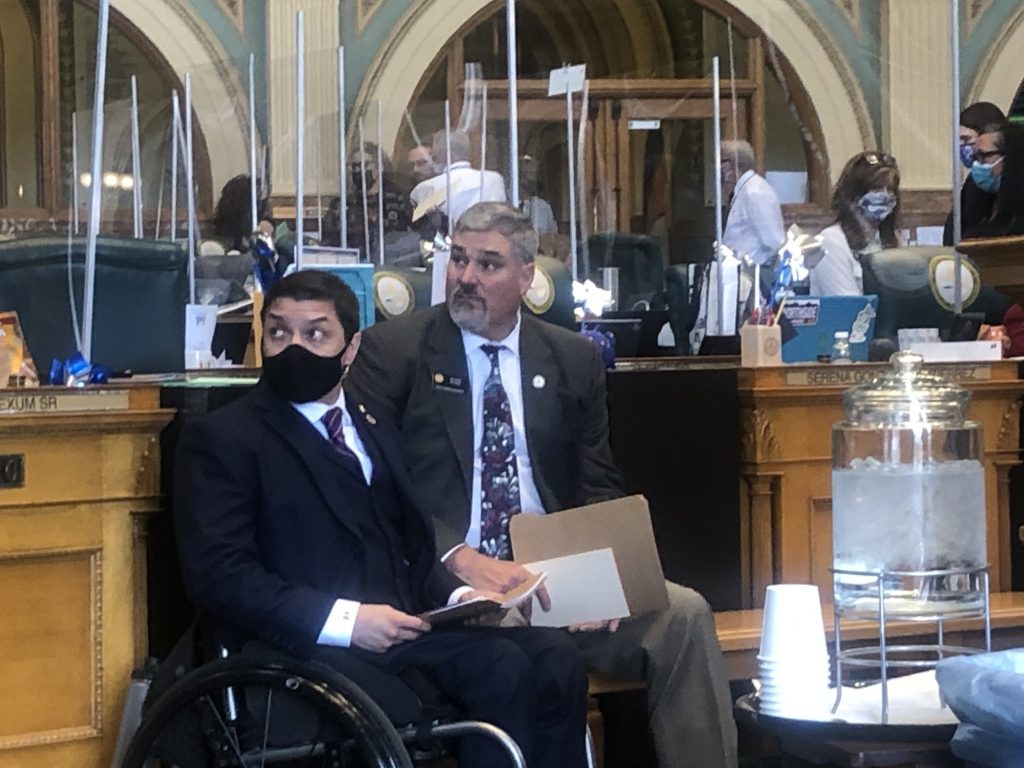
The partisan differences in views of the nature of racism, and its continued persistence in American society, have simmered within these other debates at the Capitol for months, fanned by the racial justice protests last summer.
Bacon said she wants to be part of the solution. She said she’ll continue to talk with her colleagues across the aisle about her experiences as a Black woman.
“I can have eight degrees and be a millionaire. (But) I can't wear a hoodie. I can't ask for roadside assistance,” she said.
And even with all of the other pressures of the Capitol building ramping up the intensity of these conversations, lawmakers have at times succeeded in bringing down the temperature.
A few days after Ortiz and Holtorf had their long talk, they were back on the House floor. But this time they were sitting side by side, advocating for a bill they were both sponsoring.
‘I believe that we can do better’
The House Democratic caucus is historically diverse this year. It includes numerous Latino and Black members, as well as several firsts. Ortiz is Colorado’s first lawmaker to use a wheelchair. The caucus also includes the state’s first transgender lawmaker, first African immigrant lawmaker and first Muslim state lawmaker.
For the third year in a row, Democrats also hold a majority in both legislative chambers, with a historically-wide 17 seat margin in the House.
Even as Democrats have challenged the mostly white Republican caucus to consider racial issues from different perspectives, some Republicans say the majority party isn’t always treating the GOP with equal respect.
Republican state Rep. Colin Larson was first elected in 2018, the year Democrats flipped the state Senate to take full control of the legislature. He’s one of the few Republicans representing a Denver suburb.
Larson said he thinks some Democrats have started to think of themselves as a permanent majority, with no need to secure broad support for their proposals across the aisle. He recalled how one Democratic colleague told him, non-jokingly, “Why do we even bother to talk to you?”
Larson is concerned that the legislature’s ingrained traditions of cordiality, compromise and deal-making are waning. He said it shows up in the way lawmakers treat each other while speaking at the microphone. He recalls trying to speak at the well — the central podium in the House — as a Democrat kept peppering him with comments like, “not true,” and “no you don’t.”
“It’s a total breach of decorum and this year is so different because it's almost like a comedy show with an open bar where people are just getting punchy and they're yelling at you from the gallery,” Larson said.
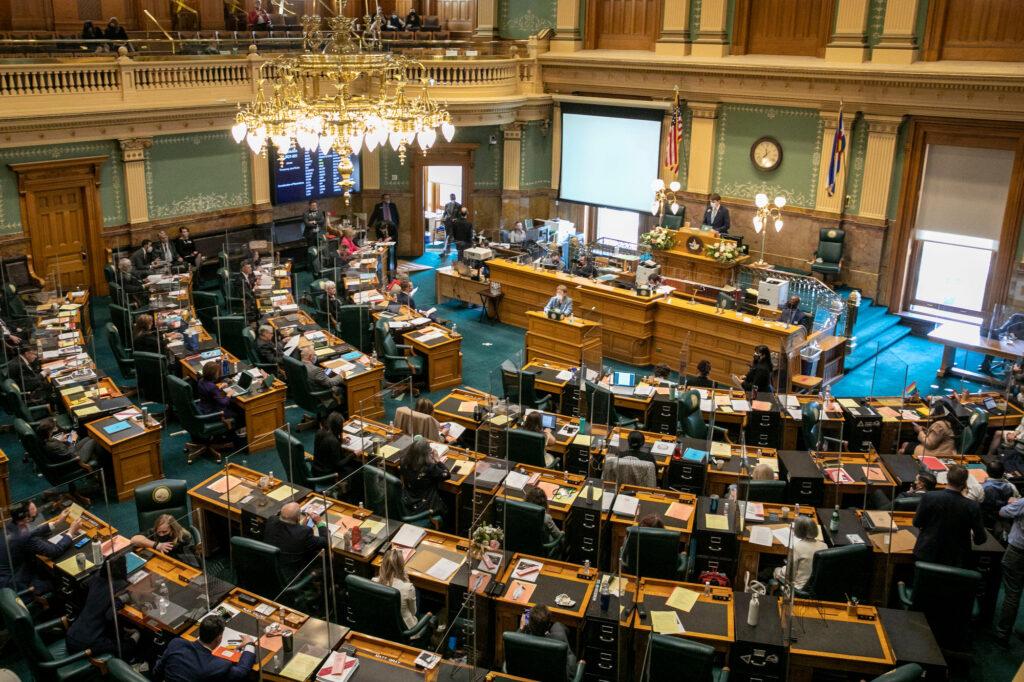
COVID-19 has also made it tougher, leaving lawmakers with fewer opportunities to get to know each other outside of work.
In sessions before the pandemic, “many nights there'd be multiple receptions where you would see members of the other party."
"You would get to know them outside the context of ‘Oh, there's that guy who just went down into the well and really torched my bill,’” he said.
Colorado’s House Speaker Alec Garnett recently asked lawmakers to reset the tone of the chamber, especially as they move into the final weeks of session, which are always some of the longest days and when the fates of the biggest bills are decided.
“There have been instances in every year that I've been here where the train has fallen off the tracks,” said Garnett, who is in his seventh session. “This year, there have been some challenging moments where racist, discriminatory words have been uttered that have really hurt Coloradans and members of the general assembly. And that those have been challenges, but I believe that we can do better."
He’s seen the job become increasingly difficult over the last five years, as lawmakers see more political rewards from engaging in those viral fiery debates than in cooperating with their colleagues.
“The political divisions have become deeper in this country than I've ever seen before. I would say this is one of the most challenging times to be a public servant and a policy maker that I can remember,” he said.








